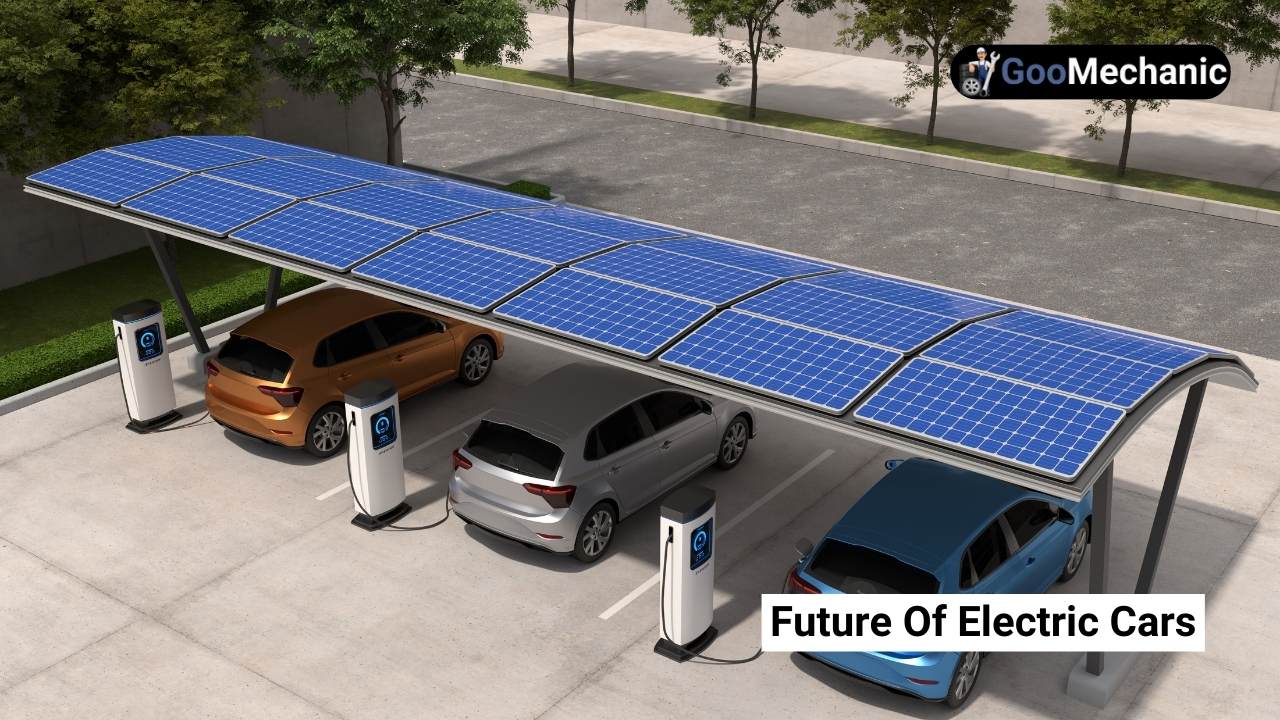Electric cars break down less frequently than gas-powered cars. They have fewer moving parts, leading to fewer mechanical issues.
Electric vehicles (EVs) are gaining popularity for their efficiency and reliability. Unlike traditional gas-powered cars, EVs have fewer moving parts, which reduces the likelihood of mechanical failures. Their electric motors and battery systems are less prone to wear and tear.
This makes maintenance simpler and breakdowns less common. With advancements in technology, the durability and performance of electric cars continue to improve. Drivers also benefit from fewer trips to the mechanic and lower long-term maintenance costs. As the automotive industry shifts towards sustainability, electric cars are proving to be a dependable choice for modern drivers.
Introduction To Electric Cars

Electric cars are changing the way we drive. They use electricity instead of gasoline. This makes them eco-friendly and cost-effective. But how often do they break down? To understand, we need to look at their history and rising popularity.
Brief History
Electric cars are not new. The first electric car was built in the 19th century. Gasoline cars then took over due to their longer range. But electric cars never disappeared. In the late 20th century, they made a comeback. Improved batteries and technology boosted their development.
Rising Popularity
Electric cars are now very popular. Many people prefer them to gasoline cars. They have fewer moving parts and require less maintenance. Charging stations are more common, making them convenient to use. Governments also support electric cars. They offer incentives and build charging infrastructure.
Here is a comparison of electric cars and gasoline cars:
| Feature | Electric Cars | Gasoline Cars |
|---|---|---|
| Fuel Type | Electricity | Gasoline |
| Maintenance | Low | High |
| Emissions | None | High |
Electric cars have come a long way. Their history and popularity show their potential. Knowing this helps us understand their reliability.
Common Issues In Electric Cars
Electric cars are becoming more popular every day. They offer clean energy and low maintenance costs. But, they do have some common issues. Knowing these problems can help you maintain your electric car better.
Battery Problems
The battery is the heart of an electric car. It powers everything from the motor to the lights. But, batteries can have issues. Here are some common battery problems:
- Battery Degradation: Over time, batteries lose their ability to hold a charge. This can reduce the car’s range.
- Charging Issues: Sometimes, batteries don’t charge properly. This can be due to faulty chargers or charging ports.
- Temperature Sensitivity: Batteries perform poorly in extreme temperatures. Cold weather can reduce battery efficiency.
Software Glitches
Electric cars rely on software for many functions. Software issues can cause various problems. Here are some common software glitches:
- Update Failures: Software updates sometimes fail. This can disrupt the car’s functions.
- System Crashes: The car’s system can crash, causing it to stop working.
- Connectivity Issues: Problems with Bluetooth or Wi-Fi can affect navigation and infotainment systems.
| Common Issue | Description |
|---|---|
| Battery Degradation | Batteries lose charge capacity over time. |
| Charging Issues | Problems with chargers or charging ports. |
| Temperature Sensitivity | Batteries perform poorly in extreme weather. |
| Update Failures | Software updates that disrupt functions. |
| System Crashes | The car’s system stops working. |
| Connectivity Issues | Bluetooth or Wi-Fi problems. |
Understanding these common issues can help you keep your electric car running smoothly. Regular maintenance and updates are key. Stay informed and enjoy your electric ride.
Frequency Of Breakdowns

Understanding the frequency of breakdowns in electric cars is important. Many people have questions about the reliability of electric cars. This section explores how often electric cars break down compared to gas cars. We will also look at some statistical data to provide a clear picture.
Comparing With Gas Cars
Electric cars are often seen as more reliable than gas cars. They have fewer moving parts. This means there are fewer things that can go wrong. Gas cars have engines with many parts that can fail. Electric cars have simple electric motors. This simplicity can lead to fewer breakdowns.
Statistical Data
Let’s look at some statistical data to understand the frequency of breakdowns.
| Vehicle Type | Average Breakdowns per Year |
|---|---|
| Electric Cars | 0.2 |
| Gas Cars | 0.5 |
The table above shows that electric cars break down less often. Electric cars average 0.2 breakdowns per year. Gas cars average 0.5 breakdowns per year. This data shows electric cars are more reliable.
- Electric cars have fewer mechanical issues.
- Gas cars have more parts that can fail.
- Electric cars require less maintenance.
Electric cars use advanced technology. This technology reduces the risk of breakdowns. Batteries and motors in electric cars are very durable. They are designed to last a long time. This makes electric cars a reliable choice for many people.
Factors Affecting Reliability
Understanding the reliability of electric cars involves examining various factors. These factors can impact how often electric cars break down. Below, we explore the key factors affecting the reliability of electric cars.
Manufacturing Quality
The quality of the manufacturing process is crucial. High-quality materials and precise assembly ensure fewer breakdowns. Electric cars from reputable brands often show better reliability.
- Build Quality: Solid construction leads to fewer mechanical issues.
- Component Quality: Top-notch parts reduce the chance of failures.
- Quality Control: Rigorous testing ensures vehicles meet high standards.
Manufacturers with strict quality control measures produce more reliable electric cars.
Maintenance Practices
Proper maintenance practices significantly affect the reliability of electric cars. Regular maintenance can prevent many common issues.
- Regular Checks: Routine inspections help detect problems early.
- Software Updates: Keeping software up-to-date ensures optimal performance.
- Battery Care: Proper battery maintenance extends its lifespan.
Following the manufacturer’s maintenance schedule is essential. Timely servicing and addressing minor issues promptly can avoid major breakdowns.
In summary, both manufacturing quality and maintenance practices play a vital role in the reliability of electric cars. Ensuring high standards in these areas can lead to fewer breakdowns and a longer vehicle lifespan.
Real-world Experiences
Understanding how often electric cars break down can be tricky. Real-world experiences provide valuable insights. Let’s dive into user testimonials and case studies to get a clearer picture.
User Testimonials
Many electric car owners share their experiences online. These stories give us a real sense of reliability.
- John from California: “I’ve driven my electric car for three years. It has never broken down.”
- Sara from New York: “My electric car had a minor issue once. The service was quick.”
- Mike from Texas: “I commute 50 miles daily. My car runs smoothly without problems.”
These testimonials show that electric cars are often reliable. People share positive feedback about their experiences.
Case Studies
Case studies offer detailed insights into electric car reliability. Let’s look at two examples:
| Case Study | Details | Outcome |
|---|---|---|
| Company Fleet | A delivery company used 50 electric vans for two years. | Less than 5% had breakdowns. Most issues were minor. |
| Ride-Sharing Service | A ride-sharing service tested 100 electric cars over one year. | Only 3 cars had issues. Repairs were quick and easy. |
These case studies highlight the strong reliability of electric cars. Both companies had positive experiences with minimal issues.
Preventive Measures
Preventive measures are essential for keeping electric cars running smoothly. Regular checks and updates help avoid unexpected breakdowns. These measures ensure the longevity of your electric car.
Regular Maintenance
Regular maintenance keeps electric cars in top shape. Inspect the battery and charging system often. Check tire pressure monthly. Replace old tires to prevent accidents. Inspect the brakes and suspension system. Keep the car clean to avoid corrosion. These steps help avoid costly repairs.
Software Updates
Electric cars rely on software to function properly. Manufacturers release updates to fix bugs and improve performance. Always install these updates. Regularly check for new software releases. Updates often add new features. Ensure your car’s software is up-to-date.
| Maintenance Task | Frequency |
|---|---|
| Battery Check | Monthly |
| Tire Pressure Check | Monthly |
| Brake Inspection | Every 6 months |
| Software Updates | As Released |
- Inspect battery and charging system
- Check tire pressure monthly
- Replace old tires
- Inspect brakes and suspension
- Keep the car clean
- Install software updates
Future Of Electric Cars

Electric cars are changing the way we travel. They are cleaner and quieter. But how often do they break down? To answer that, let’s look at the future of electric cars.
Technological Advancements
Technology in electric cars is improving fast. Battery life is getting longer. Charging times are getting shorter. New materials make batteries last longer. Here are some advancements:
- Solid-state batteries: These are safer and last longer.
- Fast-charging stations: Charge your car in minutes, not hours.
- Wireless charging: Just park your car to charge it.
These advancements mean fewer breakdowns. Electric cars are becoming more reliable every year.
Industry Trends
The electric car industry is growing. More companies are making electric cars. Tesla, Nissan, and Chevrolet are some big names. Here are some trends:
- More models: You can choose from many electric cars.
- Lower prices: Electric cars are becoming more affordable.
- Better infrastructure: More charging stations are available.
These trends make electric cars a smart choice. As the industry grows, cars will break down less often.
Frequently Asked Questions
Do Electric Cars Break Down Easily?
Electric cars do not break down easily. They have fewer moving parts and require less maintenance than gasoline cars. Regular check-ups and proper care can further ensure their reliability.
What Is The Lifespan Of An Electric Car?
The lifespan of an electric car typically ranges from 15 to 20 years. Battery life usually lasts 8 to 15 years. Proper maintenance can extend these durations.
How Often Do Electric Cars Have Problems?
Electric cars generally have fewer problems than traditional vehicles. They require less maintenance due to fewer moving parts.
What Is The Downfall Of Owning An Electric Car?
Electric cars have limited driving range and longer refueling times compared to gasoline vehicles. Charging infrastructure is still developing. They can be more expensive upfront. Battery degradation over time affects performance. Limited model options and higher repair costs can also be drawbacks.
Conclusion
Electric cars are reliable and break down less often than traditional vehicles. Regular maintenance ensures they run smoothly. With fewer moving parts, they offer a dependable driving experience. Embrace the future of transportation with confidence. Electric cars prove to be a smart, sustainable choice for modern drivers.